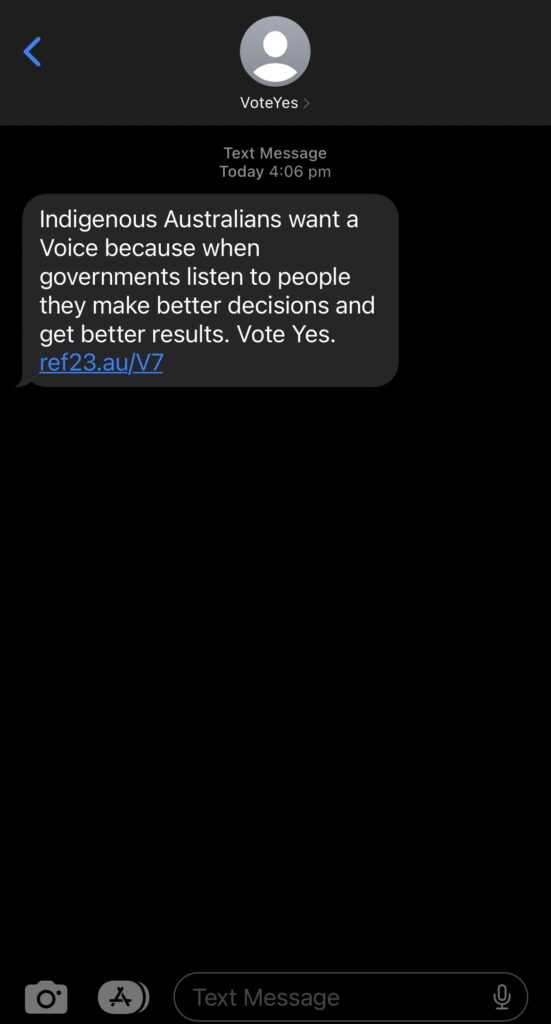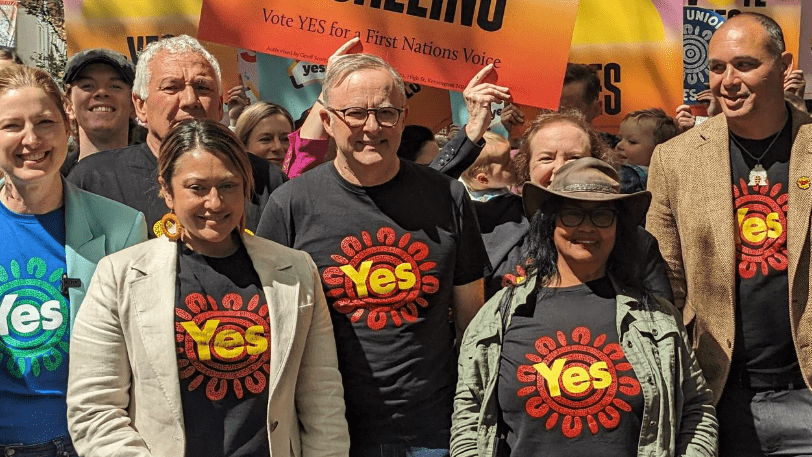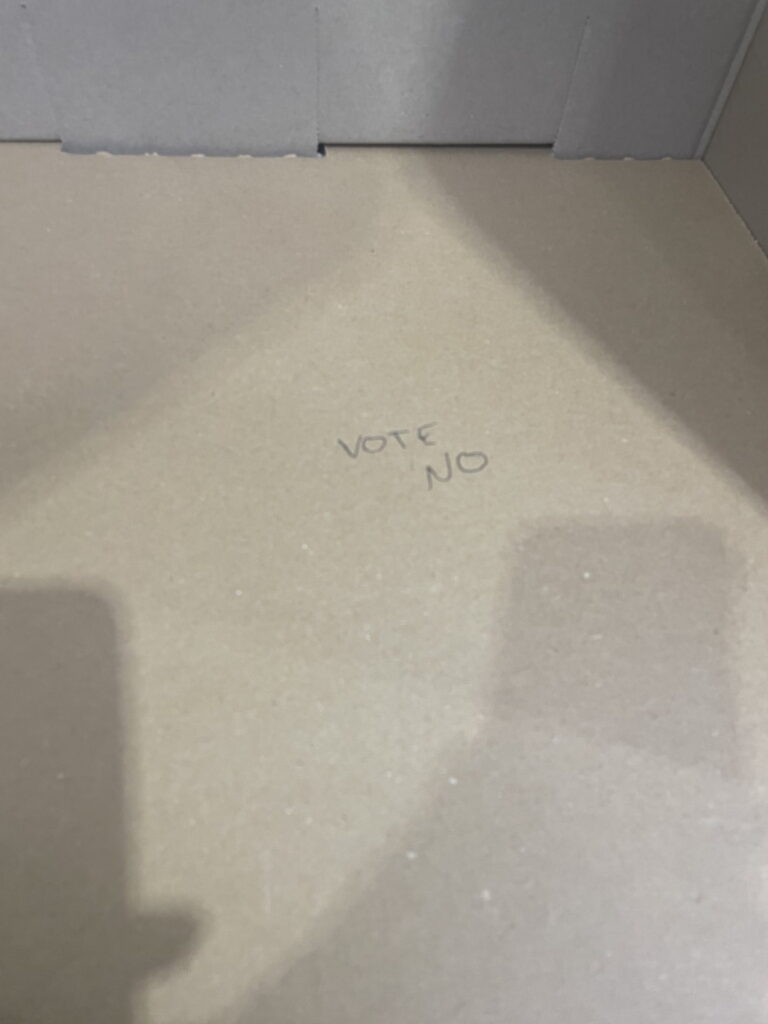As Australians gear up for the 2023 Australian Indigenous Voice referendum on Saturday, a cloud of controversy looms over the “Yes” campaign’s use of pushy text messages to influence voters. The messages, which urge voters to vote “Yes”, have drawn criticism for their perceived attempt to sway opinions.
The text message in question reads, “Indigenous Australians want a Voice because when governments listen to people, they make better decisions and get better results. Vote Yes.” Accompanied by a link to a YouTube video posted by the Australian Labor Party, the message has left some recipients feeling pressured to cast their vote in favor of the “Yes” campaign.

One early voter, who wished to remain anonymous, reported receiving the text on a Friday afternoon just as she was on her way to cast her vote. The timing of the message, coupled with its persuasive language, left her feeling psychologically coerced into voting “Yes,” despite her initial intention to vote “No.”
“I’ve been made to feel like a bad person if I vote “No”,” she told backcovernews.com. “Now I feel pressured to vote “Yes”.
The allegations have sparked debates about the ethical implications of such tactics in the lead-up to a significant referendum. Critics argue that this form of voter messaging, with its overt promotion of one side of the debate, undermines the democratic process by influencing voters’ choices. They express concerns about the need for impartiality and transparency in referendum campaigns to ensure that the public can make informed decisions based on their convictions.

The government’s involvement in disseminating such messages has also raised questions about its role in shaping the referendum’s outcome. The independence and neutrality of the referendum process are critical to its legitimacy and public trust. Critics say accusations of spamming voters with biased messages could erode this trust and undermine the integrity of the vote.
As the debate surrounding these text messages intensifies, it highlights the importance of maintaining the integrity of the referendum process and ensuring that voters are provided with unbiased information to make their choices. The allegations serve as a reminder of the need for ethical campaign practices and a fair and transparent approach to conducting referendums of national significance.
Early voting, which commenced on October 2, has seen over 4 million people exercise their right to cast their ballots.
As the countdown to the October 14 voting day approaches, the opposition to the proposal has garnered a leading position within the ‘Yes’ camp, securing 56% of the vote compared to the ‘No’ camp’s 38%. This data emerges from the latest YouGov poll released on Thursday. Notably, a small fraction of the respondents, 6%, remained undecided in their stance. YouGov conducted this survey by polling 1,519 voters.
What is the 2023 Australian Indigenous Voice referendum?
The 2023 Australian Indigenous Voice referendum is a proposed constitutional amendment that seeks to establish an Indigenous Voice to Parliament. The referendum aims to address the historical underrepresentation of Indigenous Australians in the nation’s decision-making processes and empower Indigenous communities to have a more significant role in shaping policies, legislation, and broader political matters.
The key component of the referendum includes:
Voice to Parliament: The central element of the proposed reform is the creation of a constitutionally enshrined “Voice to Parliament.” This body would act as a representative entity for Indigenous peoples, allowing them to participate in discussions and decisions at the federal level. Importantly, the Voice would not possess legislative powers but would serve as an advisory body to Parliament. Its primary role is to ensure that Indigenous perspectives are taken into account in matters that affect their lives.
The referendum reflects a broader effort to foster reconciliation, address historical injustices, and provide Indigenous communities with the means to contribute to Australia’s democratic processes. It is expected to be a defining moment in the nation’s reconciliation journey, with the potential to reshape the democratic landscape by empowering Indigenous voices and ensuring their perspectives are considered in national decision-making.
However, the referendum is not without its challenges and controversies. Some critics argue that the proposed Voice does not confer enough legislative power, while others question the necessity of constitutional change. Securing bipartisan support and persuading the public of the referendum’s importance will be significant hurdles in the lead-up to the vote.
Ultimately, the 2023 Australian Indigenous Voice referendum represents a critical step in Australia’s journey towards Indigenous empowerment, truth-telling, and reconciliation. Its success could have a profound impact on the nation’s commitment to inclusivity, unity, and social justice.

